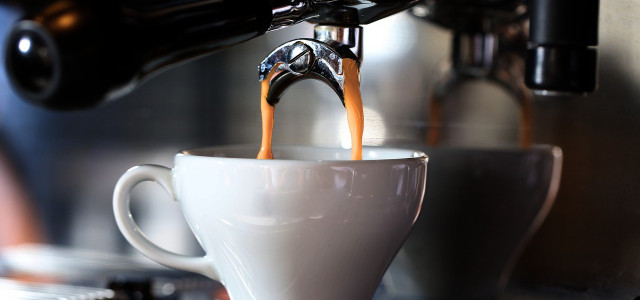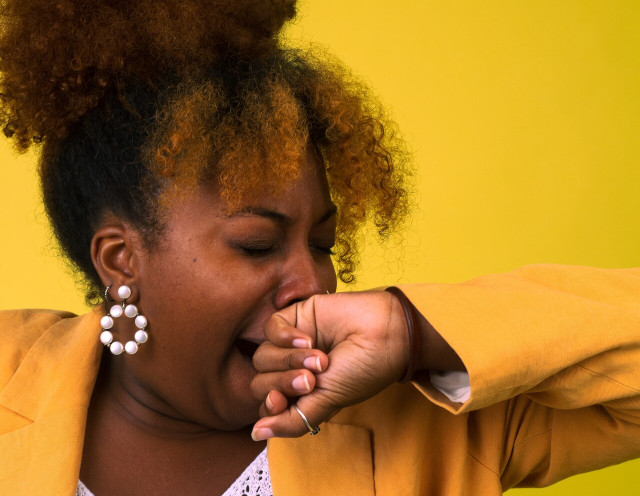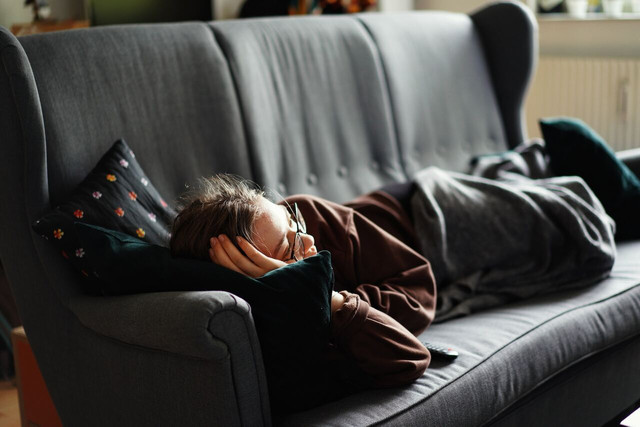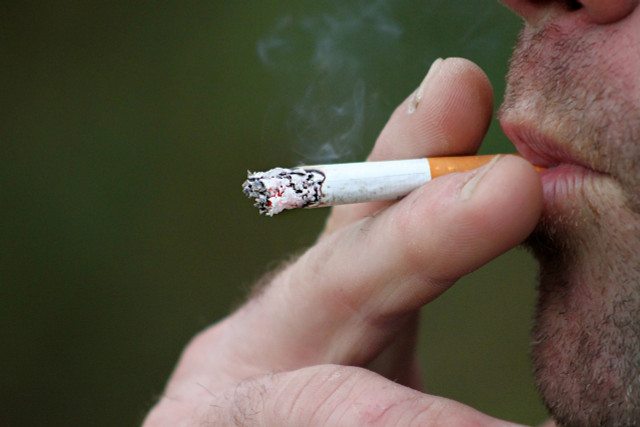
An aromatic coffee in the evening can be tempting. But does it have a negative impact on your sleep? We explain what happens in the body.
Coffee is one of the most popular drinks in Germany. Some statistics even say that Germans drink more coffee than water. The caffeine it contains has a stimulating effect and makes you awake.
For many, an evening coffee is also quite common, for example the typical Italian espresso after dinner. But does a coffee before bed have a negative effect on your night’s sleep?
Coffee before bed: Effects on the body

(Photo: CC0 / Unsplash / Karollyne Videira Hubert)
Whether you drink coffee in the evening, in the morning or throughout the day, the effect on the body is the same: If we take caffeine in through the mouth – as is the case with coffee – our body absorbs the substance quickly and completely.
In the brain, it binds to receptors that normally accept adenosine. As a rule, adenosine levels in the brain increase the longer you are awake. A higher level then leads to fatigue. Specifically, this means that caffeine blocks the signal from our brain that we are actually tired.
The effect begins a quarter to half an hour later and lasts for several hours. How sensitive you are to it depends on a number of factors such as your liver health, your age and your body weight.
What do we know so far about the effects of caffeine before sleep?
Some scientific studies have already examined how drinking coffee before bed as well as regular coffee consumption affects sleep. The Sleep Foundation, an information portal for all topics related to sleep, summarizes the findings so far:
Caffeine consumption can cause you
- fall asleep later,
- sleep fewer hours overall,
- get less deep sleep (a particularly restful sleep phase),
- Sleep therefore seems less restful overall.
Coffee on the tired morning after has a stimulating effect and can act as a wake-up call, but the Sleep Foundation emphasizes that it can in no way replace restful sleep. So if you feel sleepy all day and keep drinking coffee until late in the afternoon, this can lead to a vicious circle that means poorer sleep for you.
“Coffee Nap”: Can coffee before a nap be a good idea?

(Photo: CC= / Unsplash / Adrian Swancar)
The concept of the “Coffee Nap” combines coffee with a power nap. This takes advantage of the quarter to half hour that the coffee needs to take effect.
Esther Kuehn, a neuroscientist at the Max Planck Institute in Magdeburg, explains to Deutschlandfunk Nova that the adenosine receptors in the brain are released by napping. The caffeine then has “more docking points to develop its effect when we are awake again.”
However, the whole thing has not yet been proven with experiments. The idea also contradicts other recommendations you often hear from sleep researchers and doctors – namely that drinking coffee immediately after waking up is more likely to make you caffeine tolerant. Because early in the morning after getting up, the so-called cortisol awakening reaction ensures that we become awake and alert. It is therefore much more worthwhile to wait until this reaction has subsided before drinking your first coffee in the morning.
You can find other typical misbehaviors in the morning routine here:
What is important with a coffee nap – even in theory – is that you really don’t sleep or snooze longer than the coffee needs to take effect. Because after about 30 to 45 minutes you fall into a deep sleep and, so to speak, you oversleep the effect of the coffee, you also sleep poorly and wake up even less refreshed.
Can coffee also make you tired?
Coffee can make you tired the next day if it affects your sleep. Maybe you even know you’re sleep deprived – but assume that morning coffee will take care of it. But as explained above, that is not true. Instead, it is important to pay attention to a healthy sleep rhythm.
Some people also feel that the more caffeine they consume, the more tired they become. The Sleep Foundation explains what factors this could be due to:
-
Caffeine tolerance: Your body quickly gets used to the effects of caffeine, so the same amount soon no longer has the same effect. By the way, just a few days of coffee consumption are enough to feel withdrawal symptoms such as fatigue if you suddenly stop drinking it.
-
Dehydration: Coffee is a diuretic drink, meaning it will make you need to go to the bathroom more often. This can lead to increased fluid loss. Mild dehydration can also lead to feelings of fatigue. If you drink coffee instead of water, this effect will of course increase.
-
Effects on blood sugar: Drinking coffee in the morning could lead to higher insulin tolerance, making you more sensitive to sugar. Your blood sugar will rise more sharply if, for example, you have eaten a lot of carbohydrates. High blood sugar levels are in turn related to feelings of tiredness and sluggishness.
-
Physical factors: Not all of us process caffeine at the same speed. If your caffeine metabolism is slower, you may not wake up until later, but you will also stay awake longer. While for others a coffee four hours before bed is no problem, for others it could lead to problems falling asleep.
Worse than coffee before bed? What else keeps us awake?

(Photo: CC0 / Pixabay / cherylholt)
A 2019 study from Brigham and Women’s Hospital and Harvard Medical School examined the impact of coffee, alcohol and nicotine consumption on sleep. The good news for all coffee lovers: The researchers were unable to find any negative effects from consuming caffeine four hours before bed.
However, they emphasize that individual differences, for example in the metabolism of caffeine, could not be taken into account. The study does not say that it would be easy for everyone to drink coffee late in the afternoon.
However, nicotine and alcohol four hours before sleep had a negative effect in the study. The participants’ sleep was then overall more restless. So coffee shouldn’t be part of your evening routine – but neither should cigarettes and an alcoholic nightcap.
Read more on Techzle\.com:
- Sleeping naked: healthy or unhygienic?
- Sleep mistakes: You should avoid these 5
- Decaffeinated coffee: how healthy is it really?